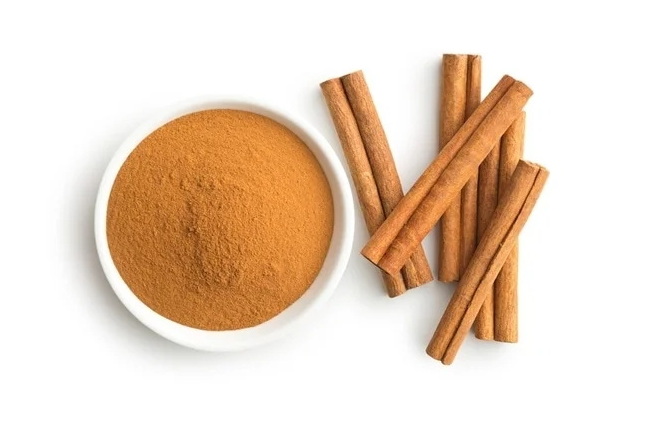Content Menu
● Introduction to Cinnamon Bark Extract
>> Extraction Process
>> Antidiabetic Effects
>> Digestive Health
>> Antimicrobial Properties
>> Anti-Inflammatory Effects
● Industrial Applications of Cinnamon Bark Extract
>> Food and Beverage Industry
>> Cosmetic and Personal Care Industry
>> Pharmaceutical Industry
● Cinnamon Bark Extract Uses in Traditional Medicine
>> Menstrual Cramps and Menstrual Health
>> Common Cold and Flu
>> Infections and Parasites
● How to Use Cinnamon Bark Extract
● Cinnamon Bark Extract in Modern Research
>> Cardiovascular Health
>> Cognitive Function
● Potential Risks and Precautions
● Conclusion
● Frequently Asked Questions
>> 1. What are the primary health benefits of cinnamon bark extract?
>> 2. How is cinnamon bark extract used in industries?
>> 3. What are the traditional uses of cinnamon bark extract?
>> 4. How can cinnamon bark extract be consumed?
>> 5. What are the potential risks of using cinnamon bark extract?
● Citations:
Cinnamon bark extract, derived from the bark of the cinnamon tree, has been widely used for centuries due to its medicinal and culinary properties. This versatile extract is rich in essential oils and compounds that contribute to its diverse applications, ranging from health benefits to industrial uses. In this article, we will explore the top uses of cinnamon bark extract, highlighting its potential health benefits, industrial applications, and more.

Introduction to Cinnamon Bark Extract
Cinnamon bark extract is obtained from the bark of the cinnamon tree, primarily from species like Cinnamomum verum (Ceylon cinnamon) and Cinnamomum aromaticum (Cassia cinnamon). The extraction process often involves steam distillation, which yields a concentrated oil rich in cinnamaldehyde, the primary active compound responsible for many of its properties.
Extraction Process
The extraction of cinnamaldehyde from cinnamon bark typically involves steam distillation. Here's a simplified overview of the process:
1. Preparation: Cinnamon bark is crushed into smaller pieces to facilitate the distillation process.
2. Distillation: The crushed bark is then subjected to steam distillation, where the steam helps release the essential oils.
3. Separation: The distillate is separated into different layers, with the essential oil layer being extracted and purified.
Cinnamon bark extract is renowned for its numerous health benefits, thanks to its antioxidant, anti-inflammatory, and antimicrobial properties.
Antidiabetic Effects
Cinnamon bark extract has been shown to have potential antidiabetic effects. It contains compounds that may mimic insulin, helping to lower blood sugar levels and improve insulin sensitivity. This makes it a promising natural remedy for managing diabetes and insulin resistance.
Digestive Health
The extract is also beneficial for digestive health. It can help alleviate symptoms of irritable bowel syndrome (IBS), such as bloating and stomach pain, by reducing inflammation and improving bowel movements.
Antimicrobial Properties
Cinnamon bark extract's antimicrobial properties make it effective against various pathogens, including bacteria and fungi. This property is often utilized in oral care products to combat bad breath and prevent infections.
Anti-Inflammatory Effects
Its anti-inflammatory properties can help reduce inflammation, which is beneficial for conditions like arthritis and other inflammatory diseases.
Industrial Applications of Cinnamon Bark Extract
Beyond its health benefits, cinnamon bark extract is widely used in various industries.
Food and Beverage Industry
In the food industry, cinnamon is used as a spice and flavoring agent. Its warm, sweet flavor makes it a popular ingredient in baked goods, desserts, and beverages.
Cosmetic and Personal Care Industry
Cinnamon oil is used in cosmetics for its fragrance and preservative properties. It is found in soaps, lotions, and other skincare products due to its antimicrobial effects.
Pharmaceutical Industry
Cinnamon bark extract is used in some pharmaceutical products for its medicinal properties, including antimicrobial and anti-inflammatory effects.

Cinnamon Bark Extract Uses in Traditional Medicine
Traditionally, cinnamon bark has been used for various medicinal purposes.
Menstrual Cramps and Menstrual Health
Cinnamon is believed to help alleviate menstrual cramps and improve menstrual health by increasing blood flow and reducing inflammation.
Common Cold and Flu
It is also used to combat symptoms of the common cold and flu, thanks to its antimicrobial properties.
Infections and Parasites
Cinnamon bark extract's antimicrobial properties make it effective against bacterial and parasitic infections.
How to Use Cinnamon Bark Extract
Cinnamon bark extract can be used in several ways:
1. Dietary Supplement: It can be consumed as a dietary supplement in capsule or powder form.
2. Cooking and Baking: Used as a spice in cooking and baking to add flavor.
3. Topical Application: Applied topically in skincare products or as an essential oil for its antimicrobial properties.
Cinnamon Bark Extract in Modern Research
Recent studies have further explored the potential benefits of cinnamon bark extract, including its effects on cardiovascular health and cognitive function.
Cardiovascular Health
Cinnamon may help reduce blood pressure and improve lipid profiles, which can contribute to better cardiovascular health.
Cognitive Function
Some research suggests that cinnamon could have neuroprotective effects, potentially improving cognitive function and memory.
Potential Risks and Precautions
While cinnamon bark extract is generally safe, there are some precautions to consider:
- Allergic Reactions: Some individuals may experience allergic reactions, such as skin irritation or digestive issues.
- Interactions with Medications: Cinnamon can interact with certain medications, such as blood thinners, so it's important to consult a healthcare provider before using it.
Conclusion
Cinnamon bark extract is a versatile compound with a wide range of applications, from health benefits to industrial uses. Its potential antidiabetic effects, digestive health benefits, and antimicrobial properties make it a valuable ingredient in both traditional medicine and modern industries. As research continues to uncover more about its properties, the uses of cinnamon bark extract are likely to expand further.

Frequently Asked Questions
1. What are the primary health benefits of cinnamon bark extract?
Cinnamon bark extract is known for its antidiabetic effects, digestive health benefits, and antimicrobial properties. It can help lower blood sugar levels, alleviate digestive issues, and combat infections.
2. How is cinnamon bark extract used in industries?
Cinnamon bark extract is used in the food industry as a spice and flavoring agent, in cosmetics for its fragrance and preservative properties, and in pharmaceuticals for its medicinal effects.
3. What are the traditional uses of cinnamon bark extract?
Traditionally, cinnamon bark extract is used to alleviate menstrual cramps, combat the common cold and flu, and treat infections and parasitic infestations.
4. How can cinnamon bark extract be consumed?
Cinnamon bark extract can be consumed as a dietary supplement, used as a spice in cooking and baking, or applied topically in skincare products.
5. What are the potential risks of using cinnamon bark extract?
While generally safe, excessive consumption of cinnamon bark extract can cause allergic reactions or interact with certain medications. It is important to consult a healthcare provider before using it, especially in large quantities.
Citations:
[1] https://www.rxlist.com/supplements/cinnamon_bark.htm
[2] https://www.youtube.com/watch?v=bDoaPIKT_Xg
[3] https://huggingface.co/openbmb/cpm-bee-1b/commit/bd72a61dd7a59086ed7456f1dfcaa995c8ec58a3.diff
[4] https://www.drugs.com/npp/cinnamon.html
[5] https://www.youtube.com/watch?v=N3aiZi14qSw
[6] https://pmc.ncbi.nlm.nih.gov/articles/PMC4003790/
[7] https://www.britannica.com/video/Overview-focus-cinnamon-Sri-Lanka-production/-287026
[8] https://www.webmd.com/diet/health-benefits-ceylon-cinnamon






























